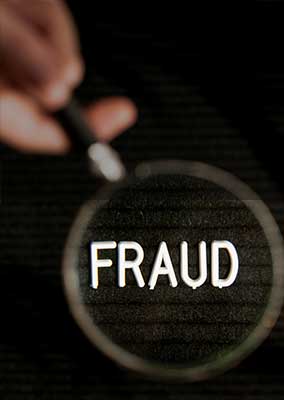Sales, Scams & Fraud
Sales, Scams & Fraud
Sales, scams, and fraud are different ways of deceiving people or businesses for money or other benefits. Here is a brief explanation of each term:
- Sales. Sales are legitimate transactions where a seller offers a product or service to a buyer for a fair price. Sales can be done online, in person, or over the phone. Sales are not fraud unless the seller lies about the product or service, or fails to deliver what they promised.
- Scams. Scams are dishonest schemes where a scammer tries to trick someone into giving them money or personal information. Scams can be done through emails, texts, calls, websites, or social media. Scammers often pretend to be someone else, such as a government agency, a charity, a lottery, or a romantic interest. Scams are illegal and can lead to identity theft, financial losses, or emotional distress.
- Fraud. Fraud is a criminal act where a fraudster uses deception or misrepresentation to obtain money, property, or services from someone else. Fraud can be done by individuals, groups, or businesses. Fraud can involve fake checks, credit cards, loans, investments, taxes, or health care. Fraud is punishable by law and can result in fines, jail time, or civil lawsuits.

Avoid becoming a victim
To avoid becoming a victim of sales, scams, or fraud, you should always be careful and skeptical when dealing with strangers or unfamiliar offers.
You should also protect your personal and financial information, and report any suspicious or fraudulent activity to the appropriate authorities. For more information and tips on how to prevent and deal with sales, scams, and fraud.
Common Types of
Scams
Scams
- Charity scams: Scammers pretend to be real charities or make up fake ones to ask for donations, especially during disasters or emergencies.
- Debt collection scams: Scammers pose as debt collectors and demand payment for debts that you don’t owe or have already paid.
- Debt settlement or relief scams: Scammers promise to reduce or eliminate your debt, but charge you high fees and leave you worse off.
- FDIC logo misuse: Scammers display the FDIC logo or claim to be insured or regulated by the FDIC to make you trust them, but they are not affiliated with the FDIC or any bank.
- Foreclosure relief or mortgage loan modification scams: Scammers offer to help you avoid foreclosure or modify your mortgage, but they take your money or your property and do nothing to help you.
- Imposter scams: Scammers pretend to be someone you know or trust, such as a government agency, a charity, a lottery, or a romantic interest, and ask you to send them money or personal information.
- Phishing scams: Scammers send you emails, texts, calls, or websites that look like they are from legitimate companies or organizations, and ask you to click on a link, open an attachment, or provide your account or personal information.
- Fake check scams: Scammers send you a check that looks real, but it is fake. They ask you to deposit it and send them some money back, but the check bounces and you lose your money.
- Investment scams: Scammers offer you a chance to invest in a lucrative opportunity, but it is a fraud. They take your money and disappear, or pay you with money from other investors until the scheme collapses.
- Health care scams: Scammers offer you fake or unapproved health products or services, such as miracle cures, weight loss pills, or COVID-19 tests or vaccines. They may also try to steal your health insurance information or money.

